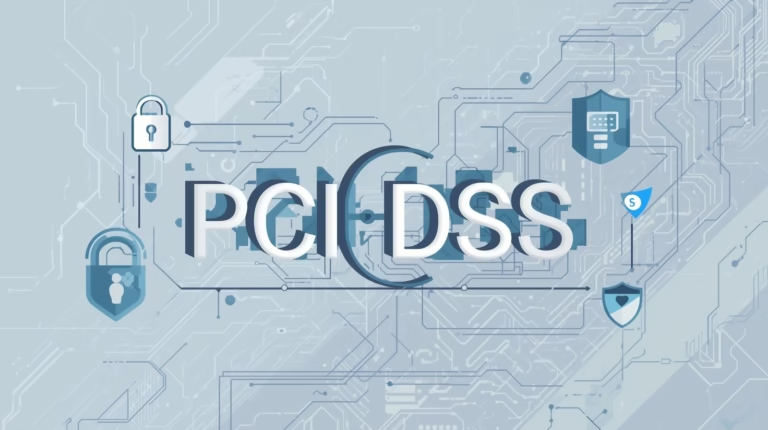Table of Contents
Pages
- About Us
- Vulnerability Assesment & Penetration Testing
- UAE Data Privacy
- KSA PDPL implementation and Fines
- Continuous Monitoring in Cybersecurity | Cyber Security Monitorring
- Empower Your Business with VCISO Services
- Soc Services
- Cyber Technology
- Security Assessments
- Audit and Compliance
- service
- India
- Cyber Security Framework SAMA
- Training & Skill Development
- Australia
- NESA Audit
- SOC2 Audit
- UAE
- Qatar
- Saudi Arabia
- Geographies
- Privacy Policy
- Penetration Testing
- Managed SOC Services
- Threat Hunting
- Dubai Computer Forensics
- Malware Analysis
- Cloud Security
- Incident Handling And Monitoring Services
- Red Team Assessments
- Mobile Application Audits
- Data Privacy
- ISO 27001
- Cyber Security Expert
- Vulnerability Assessment
- Application Security Auditing
- PCI DSS Compliance
- Privacy Policy-old
- Contact
- Blog
- Home
Categories
- What is Cyber Security?
- Web Application Security Auditing
- Web Application Security
- Web Application Firewall
- Web Apllications Security
- wapt
- Vulnerability Testing and Penetration Testing
- Vulnerability Scanning
- vulnerability assessment and penetration testing
- vapt
- Useful
- Uncategorized
- UAE Cyber Security Company
- top cyber security companies in the UAE
- Top 10 GRC Tools
- SOC UAE
- SOC 2 Certification Cost
- Security
- Red Teaming Services
- Red teaming
- Race Condition
- Privacy
- Pentest
- Penetration Testing
- PCI DSS Stands for
- PCI DSS Requirements
- PCI DSS Purpose
- PCI DSS Meaning
- PCI DSS Compliance
- PCI DSS Certification
- PCI DSS
- News
- new tech
- Most Popular SIEM Tools
- Managed Security Services Provider
- it security companies in dubai
- ISO 27001 Consultants in UAE
- ISO 27001 Compliance in the UAE
- General
- cybersecurity regulation
- Cybersecurity
- cyber sercurity firm
- Cyber Security UAE
- Cyber Security Specialist
- Cyber Security Services
- Cyber Security Near Me
- cyber security master
- Cyber Security Jobs in Dubai
- cyber security in UAE
- Cyber Security GRC
- Cyber Security Expert
- cyber security course
- Cyber Security Consultant
- Cyber Security Company in Dubai
- Cyber Security Company Dubai
- Cyber Security Company
- Cyber Security Companies
- Cyber Security Basic
- Cyber Security Awareness
- Cyber Security
- Compliance
- Application Penetration Testing
- AI-Powered Cybersecurity
Hacking is a term that often evokes a sense of mystery and intrigue. It involves the unauthorized access into computer systems or networks with malicious intent. This can result in a breach of confidentiality, integrity, or availability of data. The individuals who engage in hacking activities are known as hackers. The digital world is filled with various hacking methods that pose serious threats to cybersecurity.

Understanding Hacking
At its core, hacking is the act of gaining unauthorized access to computer systems or networks. Hackers use a range of techniques to exploit vulnerabilities in software or hardware to achieve their malicious goals. This can involve stealing sensitive information, disrupting services, or causing financial harm. Hacking is considered dangerous because it violates privacy, compromises security, and can have far-reaching consequences.
What is hacking exactly?
Hacking refers to the activity of gaining unauthorized access to computer systems or networks with malicious intent. It involves exploiting vulnerabilities in software or hardware to achieve specific goals, which can range from stealing data to disrupting services.
How do hackers gain access to systems?
Hackers can gain access to systems through various means, such as exploiting weak passwords, using malware to exploit software vulnerabilities, or employing social engineering tactics to deceive users into revealing sensitive information.
Why is hacking considered dangerous?
Hacking is considered dangerous because it can lead to data breaches, financial loss, and damage to the reputation of individuals or organizations. It poses a serious threat to cybersecurity by compromising the integrity and confidentiality of sensitive information.
Common Hacking Techniques
Hackers employ a variety of techniques to infiltrate computer systems and networks. Common hacking methods include social engineering, phishing attacks, and the use of malware to exploit vulnerabilities. These techniques are aimed at gaining unauthorized access and compromising the security of systems.
What are some common hacking methods used by hackers?
Some common hacking methods used by hackers include social engineering, where individuals are manipulated into divulging confidential information, phishing attacks that deceive users into clicking on malicious links or providing login credentials, and malware that exploits vulnerabilities in software to gain access.
How does social engineering play a role in hacking?
Social engineering is a tactic used by hackers to manipulate individuals into divulging sensitive information or performing actions that compromise security. By exploiting human psychology and trust, hackers can deceive users into revealing passwords, usernames, or other confidential data.
What is the impact of phishing attacks on cybersecurity?
Phishing attacks are a common form of cyber attack where hackers send deceptive emails or messages to individuals, prompting them to disclose personal information or click on malicious links. These attacks can lead to data breaches, financial loss, and compromised security for individuals and organizations.
Protecting Against Hacking
Individuals can take proactive steps to protect themselves against hacking incidents. Creating strong passwords, understanding cybersecurity best practices, and promoting ethical hacking practices are essential in safeguarding personal and sensitive information.
How can individuals create strong passwords to prevent hacking?
Creating strong passwords involves using a combination of letters, numbers, and special characters. Password managers can also be utilized to securely store and manage passwords for different accounts, reducing the risk of unauthorized access.
What is the importance of cybersecurity in preventing hacking incidents?
Cybersecurity plays a vital role in preventing hacking incidents by implementing robust measures such as firewalls, encryption, and multi-factor authentication. Regular software updates and security audits are also crucial in safeguarding against potential vulnerabilities.
What are some ethical hacking practices to enhance security?
Ethical hacking, also known as penetration testing, involves assessing the security of computer systems and networks to identify vulnerabilities before malicious hackers exploit them. Ethical hackers use their skills to enhance security measures and protect against cyber threats.
Ransomware and Cyber Threats
Ransomware is a type of malware that encrypts files on a victim’s computer and demands a ransom for their release. Cyber threats such as ransomware attacks target personal information and exploit vulnerabilities in software to gain unauthorized access to systems.
What is ransomware and how does it pose a threat?
Ransomware is a form of malware that encrypts files on a victim’s computer, rendering them inaccessible until a ransom is paid. This poses a significant threat to individuals and organizations, as it can lead to data loss, financial extortion, and reputational damage.
How do cyber attacks target personal information?
Cyber attacks target personal information by infiltrating computer systems and networks to steal sensitive data such as credit card details, social security numbers, or login credentials. This information can then be used for identity theft, financial fraud, or other malicious activities.
What are some common cybersecurity vulnerabilities exploited by hackers?
Hackers exploit various cybersecurity vulnerabilities, such as outdated software, weak passwords, misconfigured systems, and lack of security updates. These vulnerabilities provide entry points for hackers to gain unauthorized access and carry out malicious activities.
Types of Hackers and Hacking Tools
The digital world is home to different types of hackers who use a variety of tools to infiltrate computer systems and networks. Understanding the motives and methods of hackers is essential in implementing effective security measures to prevent unauthorized access.
What are the different types of hackers present in the digital world?
There are various types of hackers, including white hat hackers who use their skills for ethical purposes, black hat hackers who engage in malicious activities for personal gain, and grey hat hackers who operate in a morally ambiguous manner. Understanding the distinctions between these hacker types is crucial in combating cyber threats.
How do hackers use hacking tools to infiltrate computer systems?
Hackers use a range of hacking tools, such as malware, spyware, and keyloggers, to exploit vulnerabilities in computer systems and networks. These tools enable hackers to gain unauthorized access, steal sensitive information, or disrupt services without detection.
What role does brute force attacks play in hacking attempts?
Brute force attacks are a common hacking technique where hackers attempt to gain access to a system by trying multiple password combinations until the correct one is discovered. This method is often used to bypass authentication processes and gain unauthorized entry into computer syst











